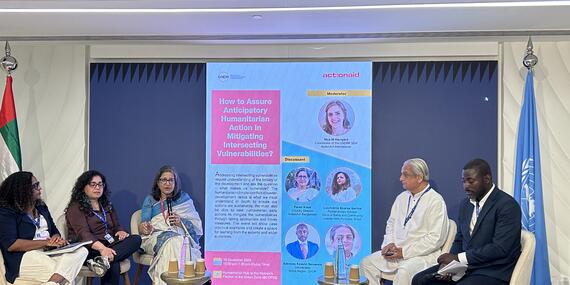Day ten @the Hub

By Ghalia Bouran
Is the aid community really listening to the people on the ground as they plan anticipatory action? Are they aware of how communities interact with their environment? These were some of the questions asked at one of the events on the tenth and final day of events at the Hub.
How to assure anticipatory humanitarian action in mitigating intersecting vulnerabilities? Organizer: ActionAid International
The first step in delivering effective anticipatory action aid is to learn about the affected communities’ vulnerabilities from themselves, said various panel members. Often, communities have the solutions to the challenges they face to make them more resilient.
Some communities even have their forecasting systems in place. Some rely on indigenous knowledge which can be very useful, shared panel members.
Farah Kabir, the country director of ActionAid Bangladesh summed up the key message of the event: “It is so important that we collaborate with communities and for them to sit in decision making process and in this anticipatory work… [so that] we can learn from different networks and traditions they have including local NGOs…Let us be guided by principles of equity, inclusion – basically human rights. Embracing intersecting vulnerabilities, we can embrace resilience!”
